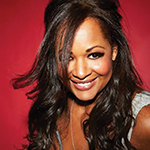Friends of Alec Wilder
The 38th Annual Concert of Alec Wilder’s Music
54 Below, NYC, November 11, 2023
By Alix Cohen
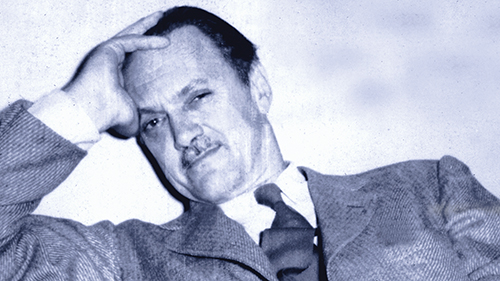
Alexander Lafayette Chew Wilder (1907-1980) studied composition and counterpoint but was largely a self-taught composer. He created an extremely wide variety of music, ranging from classical chamber music and works for soloists work to operas, film scores, jazz, musicals, revues, and popular songs, and he occasionally wrote his own lyrics. Through the popular songs, he became friends with appreciators Frank Sinatra, Peggy Lee, Mabel Mercer, and Tony Bennett.
Wilder was equally lauded and criticized by those who perhaps preferred loyalty to a single genre. His classification-defying work, often called conservative, featured intelligence and sensitivity. Whitney Balliett described him as “The President of the Derriere-garde” in a 1973 New Yorker essay. A year later, Balliett published Alec Wilder and His Friends: A Small Aristocracy.
Alec Wilder once wrote “There was no ambition to be famous, no desire to have pieces played by famous orchestras, no secret wish for commissions or prizes or for being ‘taken up’ by prominent art lovers. I simply hoped I could learn to do something well.”
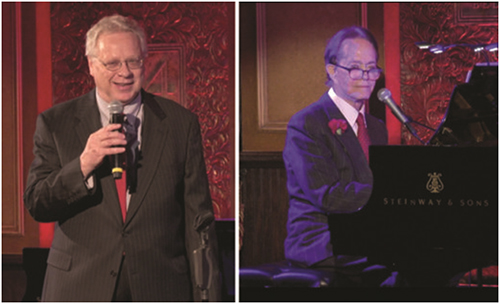
Photos: Michael Stever
Mark Walter, son of pianist/composer Cy Walter (who was a friend of and frequent with collaborator Wilder), welcomed us to this event and introduced the honorary host, Steve Ross. Citing the variety in Wilder’s work, Ross asked, “Who could forget the erotic-oh!-Neurotic Goldfish Octet.” Instead of the program continuing on a light note, however, a chamber work called Prologue was performed by The Wilderness Trio—Jonathan Fowler (tuba), Elizabeth Pfaffle (French horn), and Ron Stabinsky (piano). Though executed well, it was long, dense, and often dissonant.
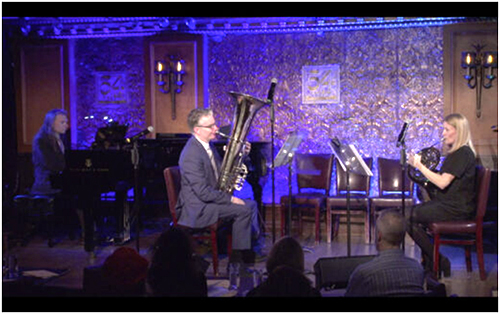
Photo: Michael Stever
Eric Comstock and Barbara Fasano, with Sean Smith on bass, gave us a real taste of Wilder’s popular work. Comstock’s “Who Can I Turn To?” (lyric by William Engvick) “Where can I go/How can I face it alone” was presented as a fox trot, with the tempo of relaxed breath. The instrumental sections were lovely. His last note floated. Jaunty and bright, “The Next Time Around” (music by Cy Walter, lyric by Wilder) was described by Ross as channeling a Jerry Herman show tune” “I’m positive we’ll make our love swing,” Comstock sang as he did just that.

Photos: Michael Stever
Fasano bought precision and control to a seductive “Give Me Time” (Alec Wilder) and made skill look easy. “Blackberry Winter” (lyric by Loonis McGlohon) followed.
It was rueful and cottony, accompanied by a light piano and a muted bass. Fasano created a melodic hush. Comstock read from James Kaplan’s two-volume biography of Sinatra which described Wilder as mustachioed and handsome in an old-money way. Ol’ Blue Eyes nicknamed him “the professor.” Unlike so many others, Wilder seemed to have no inclination to kiss up to the crooner, which Sinatra perceived as class.
Comstock and Fasano duetted on “Where Is the One?” (music by Edwin Finkel, lyric by Wilder) found Fasano sharing the piano bench with her husband. This portion of the show closed with a cheerily swung “Summer Is A-Comin’ In” (music by Wilder, lyric by Marshall Barer); it was the epitome of copacetic sophistication.
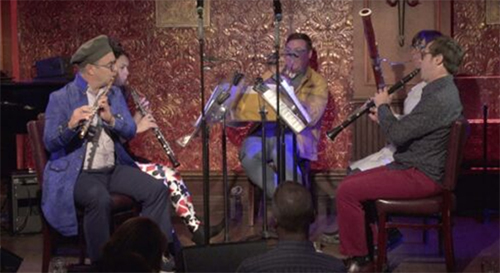
Photo: Michael Stever
The Wildebeest Wind Quintet—Michel Gentile (flutes), Nathan Koci (French horn), Michael McGinnis (clarinets), Katie Scheele (oboe and English horn), and Sara Shoenbeck (bassoon)—played Wilder’s droll Alice in Wonderland Suite. These musicians were dressed somewhat fancifully, and they exchanged smiles between phrases. If the producers of this event were set on opening with a classical piece, why didn’t they use this one? Two serious pieces weighed the program down, which resulted in appreciable cuts to the popular music most may have come to hear.
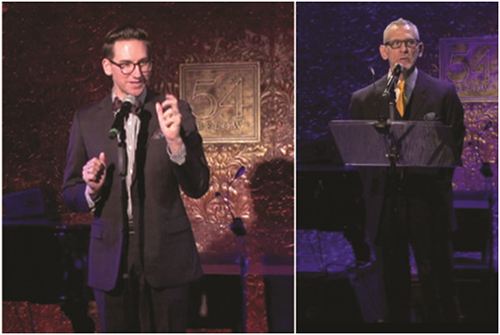
Photos: Michael Stever
Jason Henderson, a fairly new asset to the New York cabaret scenes, talked sang and the rarely heard “Unbelievable” (music by Wilder, lyric by Engvick) in a manner that, in fact, made every word empathetic and credible. By looking into faces in the audience, the young man connected. “Is It Always Like This?” (Wilder) emerged tender and affecting; the room quieted in silent agreement. Zachary Drake performed the seemingly difficult “Time and Tide” (music by Walter; lyric by Wilder) in apparent monotone. (Jack Lipson accompanied on the piano)
Ross shared the story of when he met Alec Wilder, then gave us a tender, almost fragile, “Did You Ever Cross Over to Sneden’s?” (Wilder) written for Mabel Mercer: “Did you ever cross over to Sneden’s/ Where the white houses cling to the hill?/ Did you ever cross over to Sneden’s? /Do you think that you ever will?” (Lipson accompanied on piano.)
As is tradition, the audience was invited to join in to sing Wilder’s “I’ll Be Around” led by Ross at the piano. Alas, despite being given two elaborate programs, we were given no lyrics. It turns out, the lyrics were printed on the back of one of them, but there was no announcement telling us they were there.
The program was edifying and entertaining, but poorly structured. See you next year.





